1922 was born as a short story in the 2010 collection titled Full Dark, No Stars written by Stephen King. The theme of the book explored what it would take to flip an ordinary person over the edge to do something truly evil and discover the darkness that lives inside of the everyday person. What results is a collection of four incredibly dark and thought-provoking tales that are uniquely ‘King’.
Not being a fan of short-form storytelling myself, I’d had this collection on my shelf for a number of years, but never read any of it. When asked if I would like to do this piece for 25YL, however, I saw it as a good opportunity to pick it up and read something new and then follow it with the film, which I had also not yet watched. Talk about the curse of the Netflix watch list!
I won’t dwell too much on the book itself, but the book does carry a lot of weight when arguing the point of this films major flaws. So, let’s begin straight out of the door with did I enjoy the film?
Yes. And No. Don’t get me wrong, this film has its good points, but it also has some major down points. In the end, it comes down to the simple fact that I read the book before I watched the film. Now, everyone says the book is always better than the movie, and in the vast majority of cases, this is absolutely true. However, that to me, is for a very simple reason. That reason is that film and the written word are two very different mediums and work in very different ways when telling the story and things have to be modified in a big way to get it to work on-screen. Anyone who has read The Lord of the Rings and seen the Peter Jackson movies should know exactly what I mean by this. Elements are changed to fit the medium, dialogue is chopped and changed and given to different characters, and exposition happens through what we see rather than a piece of dialogue perhaps. The list goes on and on. What resulted from the Peter Jackson movies, though, was a trilogy that was entirely different from the book, but also the same. Characters were cut, scenes were cut, interactions and dialogue were changed and completely new scenes added. But you watch the films and you still know the characters. You still know the story, and everything feels familiar and it feels right. If you don’t believe me, just google how many Oscars that trilogy won!
Some filmmakers go to extreme lengths to disguise the changes, and try to make them work in a way that won’t alienate the viewers who are already a fan of the source material and really sell it to them, but also produce it in a way that will make sense to the people who may not even know that there was a book first.
Watching 1922, however, left me feeling rather underwhelmed and a little bit disappointed. Not because it’s a bad movie, but for the absolute opposite of what I have just written above. I thought long and hard after the film had finished about what had just happened and why it had happened that way, and I feel sure now that it was just this…I like to call it, ‘The Curse of Short Fiction’.
Let’s talk a little about the story itself to get a bit of context. 1922—as you may have already guessed—is set predominantly in the year 1922, on a farm in Hemingford Home, Nebraska. The farm is inhabited by Wilfred James, along with his wife Arlette and their 14-year-old son, Henry. Wilf owns an 80-acre plot of land, though adjoining this land is a 100-acre plot left to Arlette by her late father. Arlette has grown tired of farm life and dreams of a life in the city where she can open up a dress shop. She plans to sell her portion of the land to a pig farming corporation who will pay top dollar for it, but Wilf does not agree with the plan and wishes nothing more than to carry on their peaceful life as farmers. Secretly, Wilf tries to sway the boy, Henry, into his way of thinking. To convince him that city life is not what he wants and would not be good for him, then together they will stop Arlette by any means necessary.
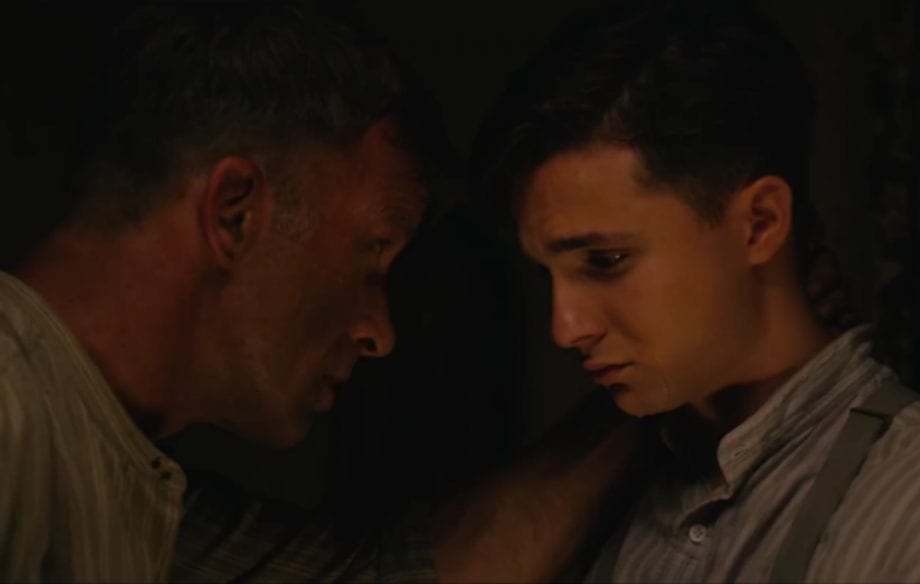
The novella is told as a confessional letter of what Wilf did during the year 1922 and the following eight years up to 1930, from a hotel room in Omaha City. The city that Wilf absolutely detested but his wife, Arlette, so dearly loved. The movie is told in the same fashion, starting with Wilf walking up to the door of his new hotel room and sitting down, ready to pour out the past eight years onto the crisp letterheaded paper of his hotel.
To begin with, I was very hopeful. One of the things I liked about the book was that the whole thing never felt just like a story playing out before your eyes, but was instead being told by a character in the story itself. It added something to the story—that sense that the narrator already knows what is going to happen and you just have to follow the story and find out. Kind of like how you felt as a child when your parents or grandparents would tell you a story. You could see the excitement in their faces because they knew what was going to happen, and the joy for them was seeing your face as you longed to hear more. That is exactly how I felt whilst reading the book.
When I saw Wilf walking up the steps to the hotel room and then sit down at the desk ready to transcribe the story, I had that same feeling. I already knew the story but I was ready to see it in a new way. A way I think we all feel when we sit down to watch something we have already read. To begin with, it felt good and it felt right, but after 20 minutes or so the cracks began to show. A niggle of doubt that I hoped wouldn’t keep spreading but just kept getting wider and wider and more and more disappointing.
The thing is, aside from a few minor changes, this movie is almost a carbon copy of the book, acted out in front of a camera like a pantomime. There were the odd bits of exposition that were changed from dialogue to actions to help make that jump from page to screen a little more convincing, but aside from that, I felt like I could have sat there with the book in my lap and followed the entire thing through as if it was the programme at the opera that tells the less operatically-minded amongst us what the hell is going on.
So, I mentioned something that I like to refer to as ‘The Curse of Short Fiction’, but what is that exactly? I also mentioned that I have never been a big fan of short fiction and much prefer long-form storytelling. You see, I like to really get into a story. I like to let it get its hooks into me and fully transport me to another world for however long it takes me to finish. With a standard novel, this is exactly what happens. The story develops at a good pace, the characters are introduced steadily, and the momentum builds at just the right pace. With short fiction, however, we only see snippets of the story. We see the most relevant slice as opposed to the whole picture. We only get to see the characters that are most relevant to the story being told and everything seems to happen all at once. There’s no real build and there’s no proper backstory or substance to what is happening to help the consumer really feel like they know what is going on in this world. You start, something happens, it ends, and you move onto the next tale.
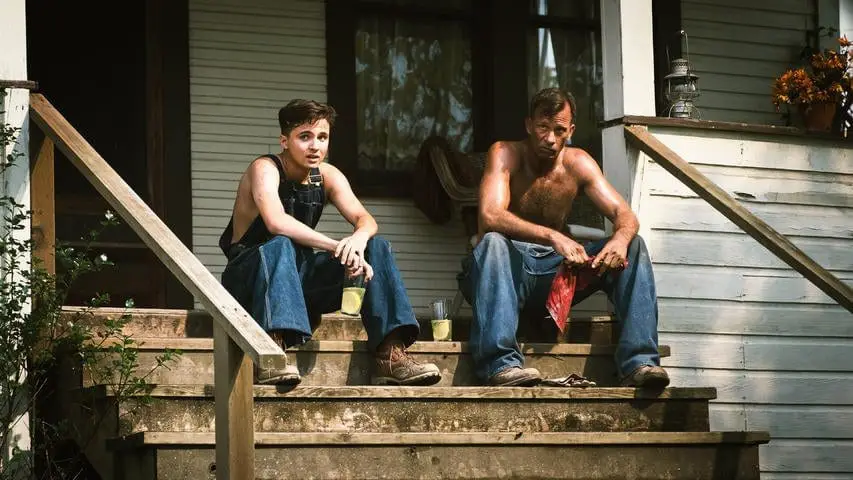
To a certain extent, that is what happens here. We are told that Wilf and Arlette live on a farm and that Arlette wants to sell up and move to the city. Now, the good thing is that 1922 is a novella and not a short story, so we do get a bit more story along with the event but it still lacks the backstory and believability of a full-sized novel, and that is what causes this film to leave the viewer feeling a little like they just wasted almost two hours of their life.
We all know that novels move slowly. It can easily take the writer a page or more (certainly Stephen King) to describe the opening of a scene where, for example, a character walks into a room. They describe everything from the clothes the character is wearing, the decor of the room, and even the smell or the chill in the air. This just doesn’t happen in film, because the filmmaker is forced to reveal all of this in just about two seconds because we can see it all before our eyes. The result of 1922 is that, to me, there just isn’t enough material to carry across to make an engaging and interesting film. Everything that happens in the book happens on the screen, with only some very minor differences. The biggest travesty of these being the ending, though. The movie ends in a very ambiguous way, which leaves the viewer to answer the final question for themselves, whereas in the book we get a bit more. It sort of feels like the camera ran out of film and they had to leave it there. Though I will admit, for the folks that haven’t read the novella, the ending will be absolutely fine, if only a tiny bit disappointing. If you have read the novella, you will know exactly what I mean when I say that I was sat there waiting for the best bit!
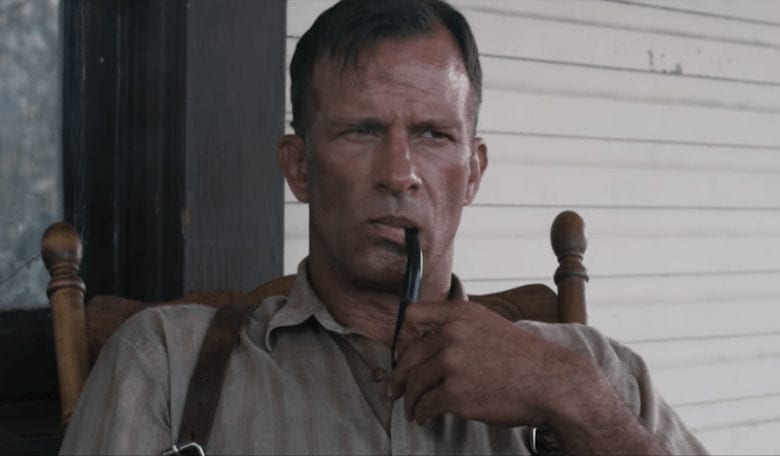
So, where does this leave us? Well, let me just wrap up a little. The film is not ‘bad’ outright. It is deeply flawed within the context of the book, but anyone who hasn’t read it will feel like nothing is happening. Those of us that have, know exactly why nothing is happening. The novella moves slowly but is told in a way that makes total sense for the speed of progression and this just does not work on film.
The acting is great, don’t get me wrong there. Thomas Jane is up there on the list as one of my favourite actors. His accent threw me off a little at first, but he pulls it off very convincingly and remains one of the world’s most underrated actors. Plus, it was nice to see him in another King movie after Frank Darabont’s The Mist, which I actually did love and thank god they kept the ending—that’s all I can say!
Dylan Schmid is also worth a mention. Dylan plays Henry James, Wilf and Arlette’s young son. To say Dylan was around 18 at the time and plays a 14-year-old, he does a great job of portraying that innocence of a young teenager going through a horrifying ordeal.
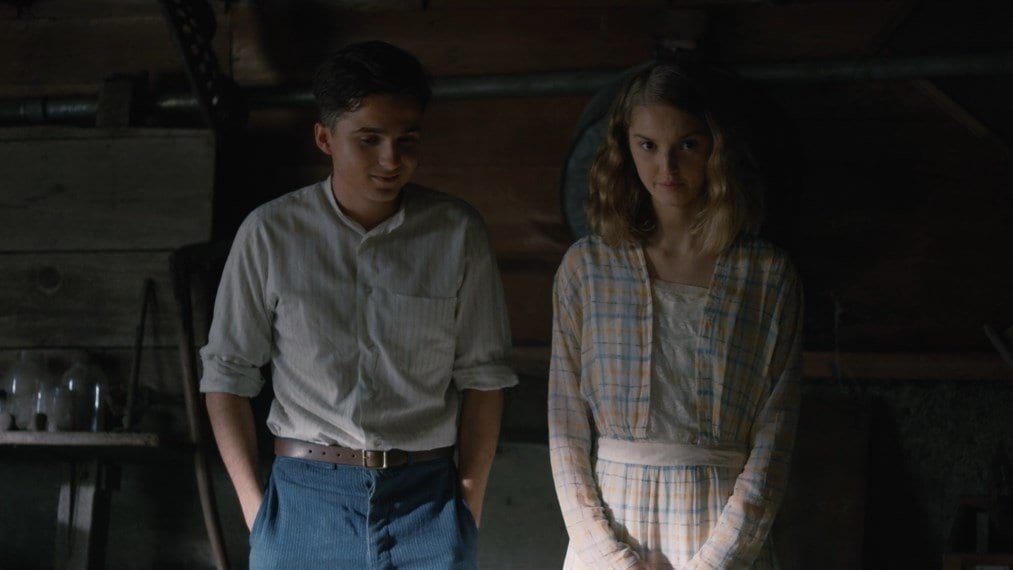
The best part for me, though, was Thomas Jane’s narration. As I mentioned earlier, the story is told through a confessional letter written by Wilf and the whole movie is narrated by Thomas Jane. He lends an extra layer of something that makes the story itself really stand out to the viewer and an extra insight into the mind of a madman. Almost like the fantastic narration in the TV series Dexter, which I probably wouldn’t have watched if it wasn’t for Michael C. Hall’s calm psychotic voice talking us through each episode.
At its heart then, 1922 is a movie that tries to be too faithful to the source material. It’s slow and almost completely devoid of any kind of excitement or build-up. Everything happens at the beginning and we are left with…well…not much else for the remaining hour and a quarter. It works in the book, but sadly it did not transfer very well onto the screen. To make it work there needed to be drastic changes to the original story and sadly we don’t get that here.

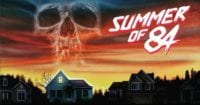
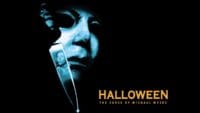
Dylan Schmid was only 16 yrs old when he played Henry James. Dylan’s mother and father had to be on set with him for all his screen time monitoring him because he was still so young. Dylan did some amazing shots with Thomas Jane none of you will ever see, sadly. But they are burned in the memories of his parents.